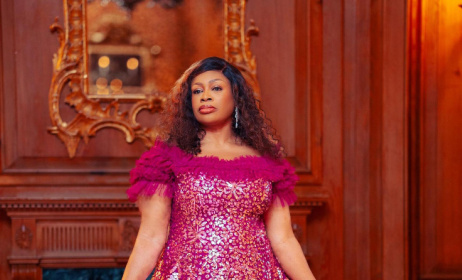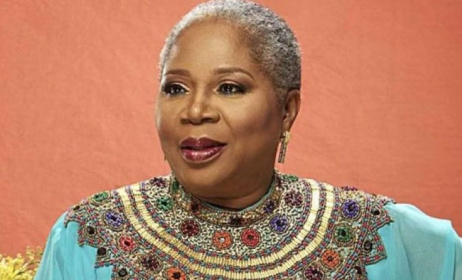The meaning of Nathaniel Bassey's Hallelujah Challenge
When Nathaniel Bassey started the Hallelujah Challenge, tagging it "Olowogbogboro", his promise, inherent in the meaning of the Yoruba word, was that a God with long, outstretched hands was ready to offer miracles to those who would join him midnightly for 60 minutes of praise and prayer throughout June.
 Nathaniel Bassey. Photo: Facebook
Nathaniel Bassey. Photo: Facebook
Instagram Live was the church, 12am the time and Bassey was the sole minister. From the first night, worshippers streamed in the hundreds. Halfway into the month, the number is well over 60 000. Videos of the live event are posted daily on YouTube and the hashtag #Hallelujahchallenge is trending and driving conversations about faith among Nigerians on Twitter.
To put Bassey’s achievement into perspective, the Hallelujah Challenge is the equivalent of filling the 6000-seater Eko Convention Center ten times over with a solo act. That is a frenzy reserved for pop stars in their prime, not gospel artists with a cult following among Christians. With a hand-held mobile phone—not even mounted on a tripod like vloggers do—he has created a show that would normally require extensive production and logistics to pull off, the kind that would make it near impossible to replicate every day for a month.
Bassey has always been regarded as one of the purest gospel artists of the country. His first album, Elohim, released in 2008, produced one hit single— 'Someone’s at the Door'. Choral groups across Nigeria turned it into a performance staple, acting and choreographing it. Another single, ‘Book of Life’, was treated the same way. Both songs were prophetic monologues meant to heat up lukewarm believers.
Nathaniel Bassey was soulful and serious. He wasn’t playful like Midnight Crew, a gospel group at the height of their own success around that time; he wasn't flamboyant like Frank Edwards, whose rock origins bear the closest similarities to Nathaniel Bassey’s soul and jazz roots.
Nathaniel Bassey started off as a jazz musician, performing with groups in Lagos. At a point in his career, he was a part of the Steve Rhodes Orchestra—Nigeria’s first jazz orchestra. He became a Christian, heeding God’s call and turning the jazz trumpet's sensuality into the haunting tool of a prophet. Bassey's voice employs the same plaintive tone as his trumpet. He coaxes the listener into solemnity.
At the Experience 11, the 2016 edition of a yearly interdenominational gospel concert held at Tafawa Balewa Square in Lagos, attendees were distracted for a while by the presence of unexpected guests. Popstars like Tiwa Savage, Don Jazzy and Dr Sid were seated in front, clapping, singing and taking selfies for Instagram. The Experience has, for the period of its run, been Nigeria’s biggest concert. Religion is a essential part of the Nigerian life.
The divide between the sacred and secular has, however, always been more imaginary than real in Nigeria. The average pop artist has at least one gospel song in their oeuvre. And the gospel artists have no scruples to be featured by their mainstream counterparts. Korede Bello sings ‘God Win’, dancing his way into church services. Pasuma gets a feature on Bukola Senwele Jesu’s music and becomes Brother Pasuma.
So it's no surprise that pop stars are part of the challenge. What couldn’t have been predicted is the glee with which they comment along with other worshippers on Instagram. Tucked among the earnest prayers and the frequent glossolalia are comments by pop stars. Ice Prince typed “God Only”. “Every Evil Plan has been rendered null and void,” Weird MC said. Dbanj entered an extended “Suddenlyyy”. Their enthusiasm precludes the cynical thought that they've joined the Challenge merely to pick strategies for their craft.
Advertisers are calling it the ultimate growth hack. Nathaniel Bassey has turned a handful of ardent followers into a mass of fans—even social media trolls are drawn to the party, wondering what the all fuss is about. Christians call it a revival. They send testimonies to Bassey and attribute the arrests of criminals across the country to the Challenge.
That last claim is debatable, dubious even. But there’s one detail everyone can acknowledge: through the Hallelujah Challenge, Nathaniel Bassey has made a vigil viral, and turned a worship service into a national event. Maybe that's a miracle.


































Comments
Log in or register to post comments